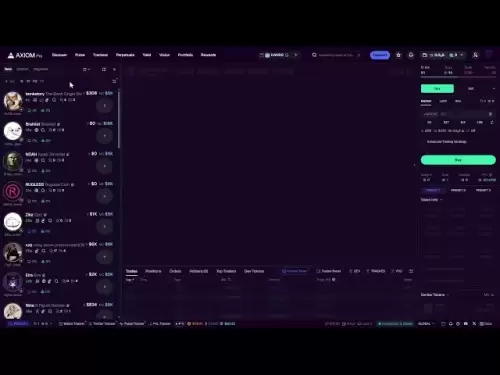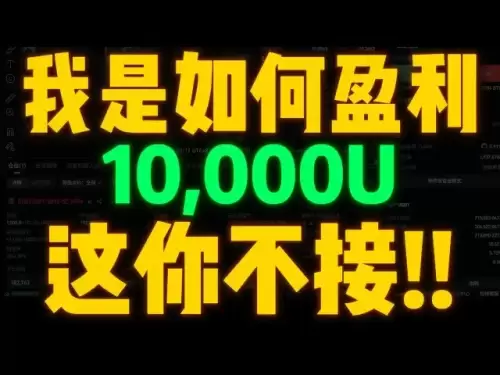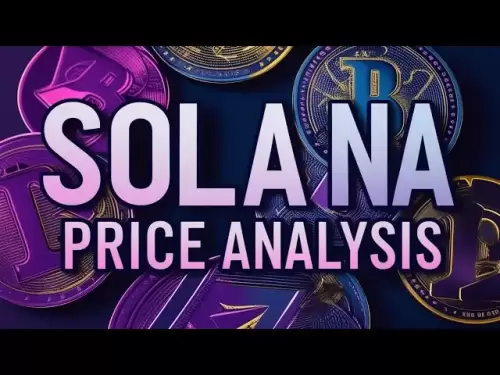-
 Bitcoin
Bitcoin $118300
-0.58% -
 Ethereum
Ethereum $3825
0.11% -
 XRP
XRP $3.137
-0.71% -
 Tether USDt
Tether USDt $0.9999
-0.01% -
 BNB
BNB $803.9
-3.37% -
 Solana
Solana $181.5
-1.94% -
 USDC
USDC $0.9999
0.01% -
 Dogecoin
Dogecoin $0.2238
-2.51% -
 TRON
TRON $0.3358
2.12% -
 Cardano
Cardano $0.7844
-2.16% -
 Hyperliquid
Hyperliquid $43.31
-1.48% -
 Sui
Sui $3.807
-4.04% -
 Stellar
Stellar $0.4203
-1.96% -
 Chainlink
Chainlink $17.79
-3.00% -
 Bitcoin Cash
Bitcoin Cash $567.8
-1.34% -
 Hedera
Hedera $0.2614
-4.30% -
 Avalanche
Avalanche $24.19
-4.46% -
 Litecoin
Litecoin $109.2
-0.74% -
 UNUS SED LEO
UNUS SED LEO $8.969
-0.01% -
 Toncoin
Toncoin $3.404
3.97% -
 Ethena USDe
Ethena USDe $1.001
-0.01% -
 Shiba Inu
Shiba Inu $0.00001307
-3.19% -
 Uniswap
Uniswap $10.33
-1.23% -
 Polkadot
Polkadot $3.884
-4.06% -
 Monero
Monero $312.9
-1.87% -
 Dai
Dai $1.000
0.01% -
 Bitget Token
Bitget Token $4.537
-2.24% -
 Pepe
Pepe $0.00001156
-3.40% -
 Cronos
Cronos $0.1437
-0.89% -
 Aave
Aave $282.8
-2.77%
Exodus transaction status is always pending. How to speed up confirmation?
To speed up a pending transaction in Exodus, increase the fee via CPFP, use a transaction accelerator, contact support, or wait it out while monitoring the status.
May 14, 2025 at 10:14 pm
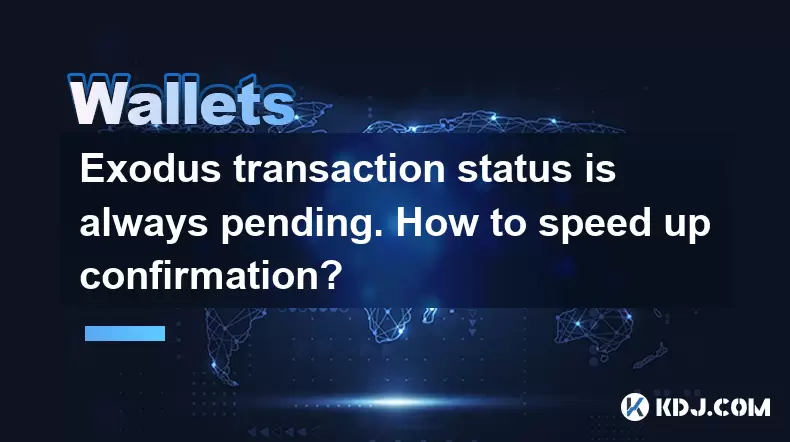
Exodus Transaction Status is Always Pending: How to Speed Up Confirmation?
When you initiate a transaction on the Exodus wallet, you expect it to go through quickly and smoothly. However, sometimes you may find that your transaction status remains pending for an extended period. This can be frustrating, especially if you need to complete the transaction urgently. In this article, we will explore the reasons behind pending transactions in Exodus and provide detailed steps on how to speed up the confirmation process.
Understanding Pending Transactions in Exodus
Pending transactions in Exodus occur when your transaction has been broadcast to the blockchain network but has not yet been confirmed. Several factors can contribute to this delay, including network congestion, low transaction fees, and issues with the blockchain itself. Understanding these factors is crucial to effectively addressing the problem.
Common Reasons for Pending Transactions
There are several reasons why your transaction might remain pending in Exodus. Let's delve into the most common ones:
Network Congestion: When there is a high volume of transactions on the blockchain, it can lead to delays. During peak times, the network can become congested, causing transactions to take longer to confirm.
Low Transaction Fees: If you set a low transaction fee, miners might prioritize other transactions with higher fees. This can result in your transaction being stuck in the mempool, waiting for confirmation.
Blockchain Issues: Sometimes, the blockchain itself may experience technical difficulties or undergo maintenance, which can affect transaction processing times.
Wallet Errors: Occasionally, issues within the Exodus wallet software can cause transactions to remain pending. This might be due to bugs or incorrect settings.
How to Check the Status of Your Transaction
Before attempting to speed up your transaction, it's essential to verify its current status. Here's how you can check the status of your transaction in Exodus:
Open Exodus Wallet: Launch your Exodus wallet on your device.
Navigate to Transaction History: Click on the wallet from which you sent the transaction and then go to the "Transactions" tab.
Find the Pending Transaction: Look for the transaction labeled as "Pending" and note down the transaction ID (TXID).
Use a Blockchain Explorer: Visit a blockchain explorer website (e.g., Blockchain.com for Bitcoin, Etherscan for Ethereum) and enter the TXID to view the transaction details. This will show you the current status and any potential issues.
Steps to Speed Up a Pending Transaction in Exodus
If your transaction remains pending, you can take several steps to speed up the confirmation process. Here's a detailed guide on how to do this:
Increase the Transaction Fee
One of the most effective ways to speed up a pending transaction is to increase the transaction fee. This can be done through a process called transaction acceleration or child pays for parent (CPFP). Here's how to do it:
Open Exodus Wallet: Launch your Exodus wallet.
Find the Pending Transaction: Go to the "Transactions" tab and locate the pending transaction.
Initiate a New Transaction: Create a new transaction from the same wallet, sending a small amount of cryptocurrency to yourself.
Set a High Fee: When setting up the new transaction, choose a high transaction fee. This will incentivize miners to confirm both the new transaction and the original pending transaction.
Confirm the Transaction: Review the details and confirm the new transaction. The high fee should help expedite the confirmation of both transactions.
Use a Transaction Accelerator
Some blockchain networks offer transaction accelerators that can help speed up pending transactions. Here's how to use a transaction accelerator:
Identify the Blockchain: Determine which blockchain your pending transaction is on (e.g., Bitcoin, Ethereum).
Visit a Transaction Accelerator Service: Go to a reputable transaction accelerator service (e.g., ViaBTC for Bitcoin, ETH Gas Station for Ethereum).
Enter the TXID: Input the TXID of your pending transaction into the accelerator service.
Submit the Request: Follow the service's instructions to submit your acceleration request. Some services may require a fee.
Monitor the Transaction: Keep an eye on the transaction status using a blockchain explorer to see if it gets confirmed faster.
Contact Exodus Support
If the above methods do not work, you can reach out to Exodus support for assistance. Here's how to do it:
Visit the Exodus Support Page: Go to the official Exodus website and navigate to the support section.
Submit a Support Ticket: Fill out the support form with details about your pending transaction, including the TXID and any steps you've already taken.
Wait for a Response: Exodus support will review your case and provide guidance on how to resolve the issue.
Wait It Out
Sometimes, the best course of action is to simply wait. If the network is congested, your transaction may eventually be confirmed without any intervention. Here's what to do:
Monitor the Transaction: Regularly check the transaction status using a blockchain explorer.
Be Patient: Allow some time for the network to process the transaction. In many cases, transactions will confirm within a few hours or a day.
Preventing Future Pending Transactions
To minimize the likelihood of future transactions remaining pending, consider the following tips:
Set Appropriate Fees: Always set a transaction fee that is competitive with current network conditions. You can use fee estimators like BitcoinFees or ETH Gas Station to determine the optimal fee.
Avoid Peak Times: Try to avoid sending transactions during peak times when the network is likely to be congested.
Keep Your Wallet Updated: Ensure that your Exodus wallet is always updated to the latest version to avoid any software-related issues.
Monitor Network Conditions: Stay informed about the current state of the blockchain network you are using. Websites like Blockchain.com and Etherscan provide real-time data on network congestion and transaction times.
Frequently Asked Questions
Q: Can I cancel a pending transaction in Exodus?
A: In most cases, you cannot cancel a pending transaction once it has been broadcast to the blockchain. However, you can try to speed up the confirmation process using the methods described above. If the transaction remains pending for an extended period, you may need to contact Exodus support for further assistance.
Q: How long should I wait for a transaction to confirm in Exodus?
A: The confirmation time can vary depending on the blockchain network and current conditions. Typically, Bitcoin transactions can take anywhere from 10 minutes to several hours, while Ethereum transactions might take a few minutes to an hour. If your transaction remains pending for more than 24 hours, it's advisable to take action to speed up the confirmation.
Q: Will increasing the transaction fee always speed up a pending transaction?
A: Increasing the transaction fee can significantly improve the chances of your transaction being confirmed faster, but it is not a guarantee. If the network is extremely congested or if there are other issues at play, even a high fee might not result in immediate confirmation.
Q: Can I use a different wallet to speed up a pending transaction in Exodus?
A: No, you cannot use a different wallet to directly speed up a pending transaction in Exodus. However, you can use the child pays for parent (CPFP) method within Exodus to create a new transaction with a higher fee, which can help expedite the confirmation of the original transaction.
Disclaimer:info@kdj.com
The information provided is not trading advice. kdj.com does not assume any responsibility for any investments made based on the information provided in this article. Cryptocurrencies are highly volatile and it is highly recommended that you invest with caution after thorough research!
If you believe that the content used on this website infringes your copyright, please contact us immediately (info@kdj.com) and we will delete it promptly.
- Dalio's Take: Balancing Bitcoin, Gold, and the Debt Doom Loop
- 2025-07-31 00:51:15
- Ethereum's Epic Rally: A Decade of Decentralization and a Celebration in NFTs
- 2025-07-31 01:11:05
- XRP Price, Altcoins, and the 50x Potential: What's the Buzz?
- 2025-07-31 01:15:14
- BlockchainFX ($BFX): Is This Altcoin the Best Crypto Presale of 2025?
- 2025-07-31 01:21:27
- PENGU Price Plunge? Binance Transfers and Token Transfer Trends
- 2025-07-30 23:10:15
- Navigating Crypto Investment: Bitcoin Mining and the Rise of Cloud Mining in the Big Apple
- 2025-07-30 22:31:15
Related knowledge
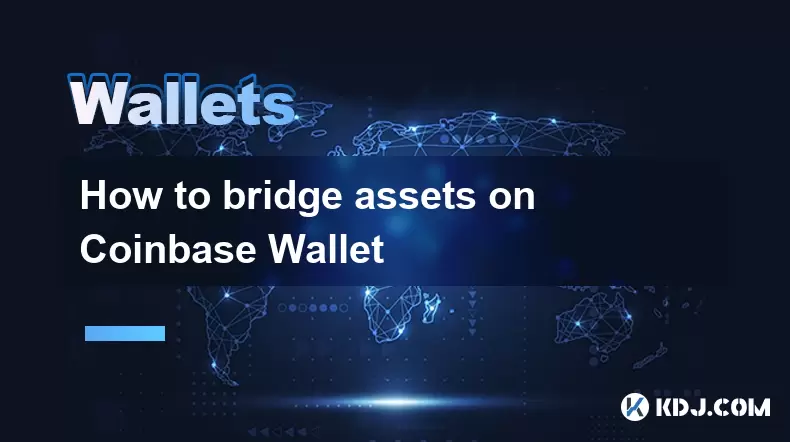
How to bridge assets on Coinbase Wallet
Jul 27,2025 at 01:14am
What Is Asset Bridging in the Context of Coinbase Wallet?Bridging assets refers to the process of transferring tokens from one blockchain network to a...
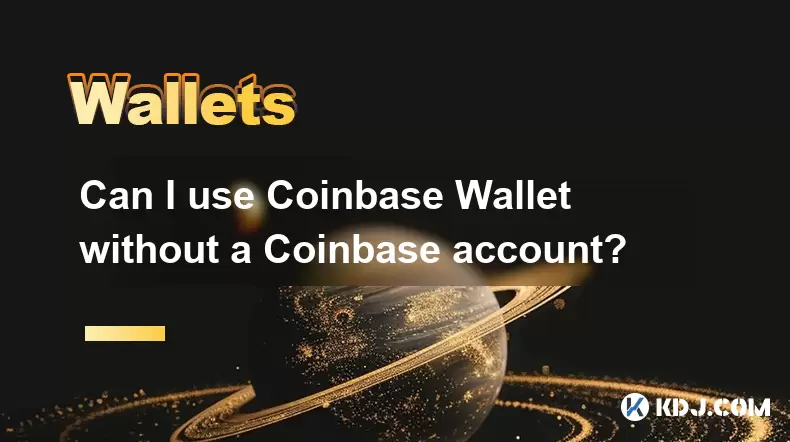
Can I use Coinbase Wallet without a Coinbase account?
Jul 18,2025 at 04:35am
What is Coinbase Wallet?Coinbase Wallet is a self-custodial wallet that allows users to store, send, and receive various cryptocurrencies directly on ...
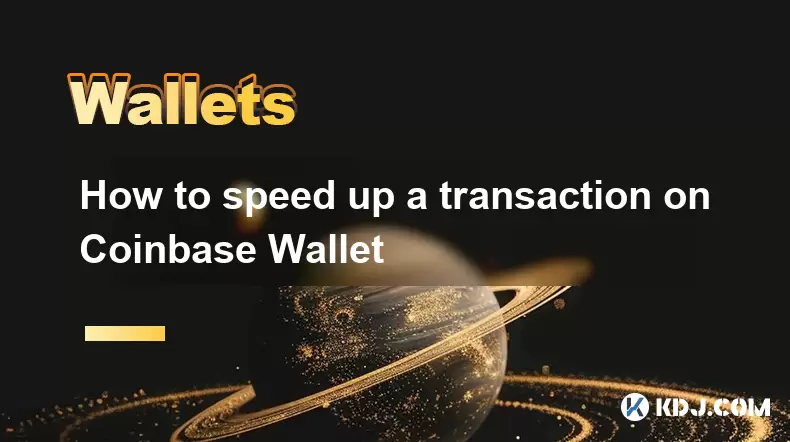
How to speed up a transaction on Coinbase Wallet
Jul 27,2025 at 07:14am
Understanding Transaction Speed on Coinbase WalletWhen using Coinbase Wallet, users may occasionally encounter delays in transaction confirmations. Th...
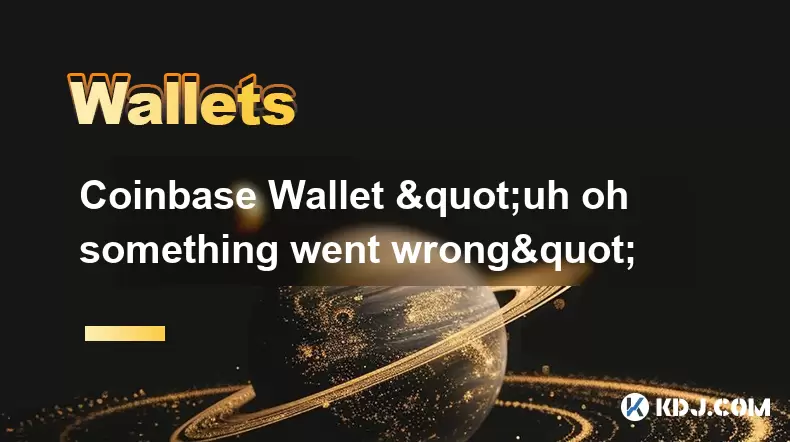
Coinbase Wallet "uh oh something went wrong"
Jul 20,2025 at 10:00am
Understanding the Coinbase Wallet Error: 'Uh Oh, Something Went Wrong'If you're a Coinbase Wallet user, encountering the error message 'Uh Oh, Somethi...
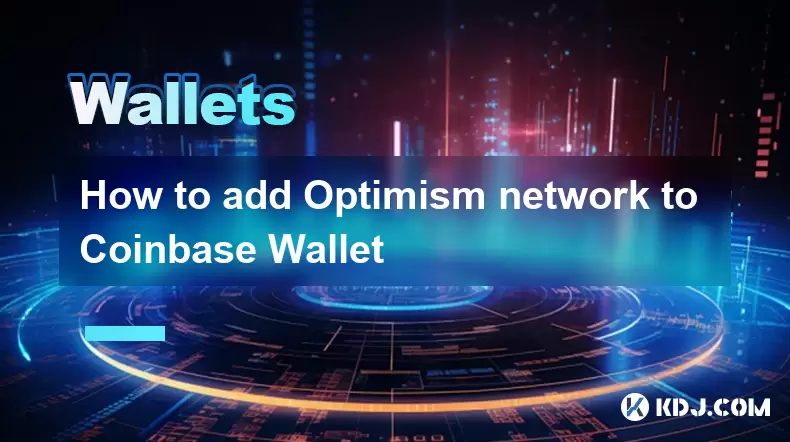
How to add Optimism network to Coinbase Wallet
Jul 20,2025 at 05:21am
What is the Optimism Network?The Optimism network is a Layer 2 scaling solution built on top of the Ethereum blockchain. It aims to enhance transactio...
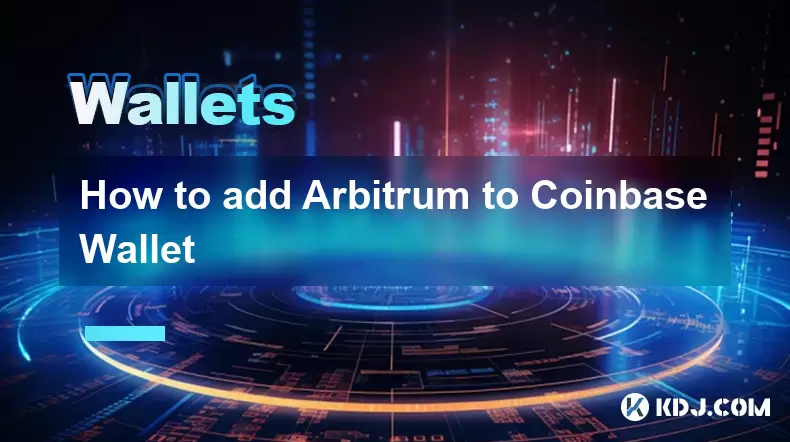
How to add Arbitrum to Coinbase Wallet
Jul 18,2025 at 03:00pm
Understanding Arbitrum and Its Integration with Coinbase WalletArbitrum is a layer-2 scaling solution developed by Offchain Labs to enhance the speed ...

How to bridge assets on Coinbase Wallet
Jul 27,2025 at 01:14am
What Is Asset Bridging in the Context of Coinbase Wallet?Bridging assets refers to the process of transferring tokens from one blockchain network to a...

Can I use Coinbase Wallet without a Coinbase account?
Jul 18,2025 at 04:35am
What is Coinbase Wallet?Coinbase Wallet is a self-custodial wallet that allows users to store, send, and receive various cryptocurrencies directly on ...

How to speed up a transaction on Coinbase Wallet
Jul 27,2025 at 07:14am
Understanding Transaction Speed on Coinbase WalletWhen using Coinbase Wallet, users may occasionally encounter delays in transaction confirmations. Th...

Coinbase Wallet "uh oh something went wrong"
Jul 20,2025 at 10:00am
Understanding the Coinbase Wallet Error: 'Uh Oh, Something Went Wrong'If you're a Coinbase Wallet user, encountering the error message 'Uh Oh, Somethi...

How to add Optimism network to Coinbase Wallet
Jul 20,2025 at 05:21am
What is the Optimism Network?The Optimism network is a Layer 2 scaling solution built on top of the Ethereum blockchain. It aims to enhance transactio...

How to add Arbitrum to Coinbase Wallet
Jul 18,2025 at 03:00pm
Understanding Arbitrum and Its Integration with Coinbase WalletArbitrum is a layer-2 scaling solution developed by Offchain Labs to enhance the speed ...
See all articles





















